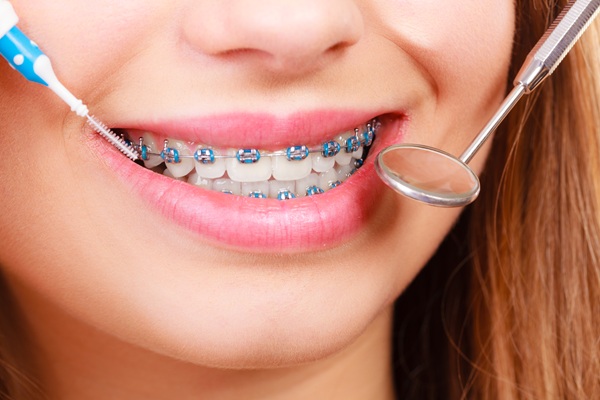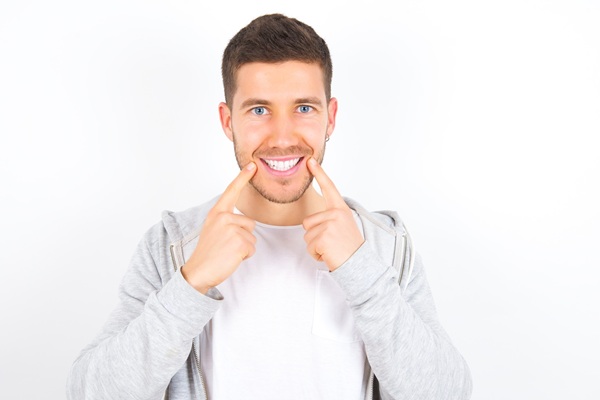 Looking into your bite correction treatment options? Continue reading to learn the answers to five commonly asked questions about bite correction using traditional braces. Improved oral hygiene is only one of the numerous advantages of having a healthy bite and straight teeth.
Looking into your bite correction treatment options? Continue reading to learn the answers to five commonly asked questions about bite correction using traditional braces. Improved oral hygiene is only one of the numerous advantages of having a healthy bite and straight teeth.
5 FAQs about bite correction
Orthodontic treatment helps correct bite problems and realign the jaw. Talking and eating is less of a hassle if the teeth line up properly and the jaw is properly aligned. In addition, it may help protect the teeth from early wear and tear and make brushing and flossing easier.
1. How often will I need to come in for dental visits?
There is no standard number of appointments for bite correction. A visit once a month or once every three months is not out of the question. The number of visits patients may require changes during the course of treatment.
The orthodontist will inspect the braces and the treatment progress at each visit. In addition, the braces will be cleaned, the teeth flossed, and new wires and elastics installed or adjusted at this appointment. However, these consultations usually take about 30 minutes.
2. What is the working mechanism of braces?
Traditional braces use tension to move teeth progressively. The pressure exerted on the teeth and jaw changes the form of the jaw and the location of the teeth over time. The bone that anchors the teeth is actually reshaped during the treatment. This tension is provided by the archwire that attaches to the brackets on each tooth. The orthodontist will modify this wire's pressure at each adjustment session.
3. What are the dietary restrictions during treatment?
For the first few days after getting braces, it is advisable to stick to soft meals. The mouth may feel sensitive and chewing may feel slightly odd. Patients will be able to eat normally soon enough, but they will have to avoid certain foods. Pretzels, chips, almonds, and other crunchy foods should be avoided, as well as chewy sweets, gum, hard candy, and ice. The archwire may be damaged, or a bracket can come loose if these foods get trapped around the braces.
4. How do I handle my oral hygiene during treatment?
Braces are necessary for bite correction, but patients will still need to brush and floss regularly to maintain a healthy mouth. Brushing the teeth is essential since food may become trapped in braces. It is advisable to clean the teeth at least twice a day, after each meal and before sleeping. Flossing helps keep the gums clean and healthy. Keeping regular dental cleaning appointments is also important.
5. How long does bite correction treatment take?
The nature of the problem will determine the length of treatment. Treatment might take anywhere from 12 months to two and a half years in certain circumstances. A rough estimate of how long treatment will take will be provided in advance by the orthodontist.
Ready for a more aligned smile?
You can better prepare for your orthodontic examination if you know the answers to the most commonly asked questions about bite correction treatment. Contact our dental office today to schedule an orthodontic consultation.
Request an appointment or call Michael Emanuel DDS PLLC at 718-635-4822 for an appointment in our Brooklyn office.
Related Posts
An orthodontist has various treatments to help patients achieve a straighter smile. While it is possible to get orthodontic treatment from other dental providers or even online, choosing a specialist like an orthodontist to guide your treatment can be the safest, quickest, and most comfortable route. Understanding why orthodontist-led treatments are the preferred choice for…
Curious about orthodontic treatment? Read on to learn more. Straight teeth and properly aligned jaws make for a healthy and functional smile. Many people are lucky to have naturally straight teeth, but others require orthodontic intervention to correct overcrowding, gaps, or misalignment. In some cases, orthodontic therapy can extend far beyond repositioning the teeth in…
Discovering you need orthodontic care does not have to be a worrisome situation. The orthodontist will help you the whole way, and the staff will guide you on any concerns, ranging from financing to maintenance. If you have booked an appointment with an orthodontist, this piece provides a guide on what to expect and questions…


